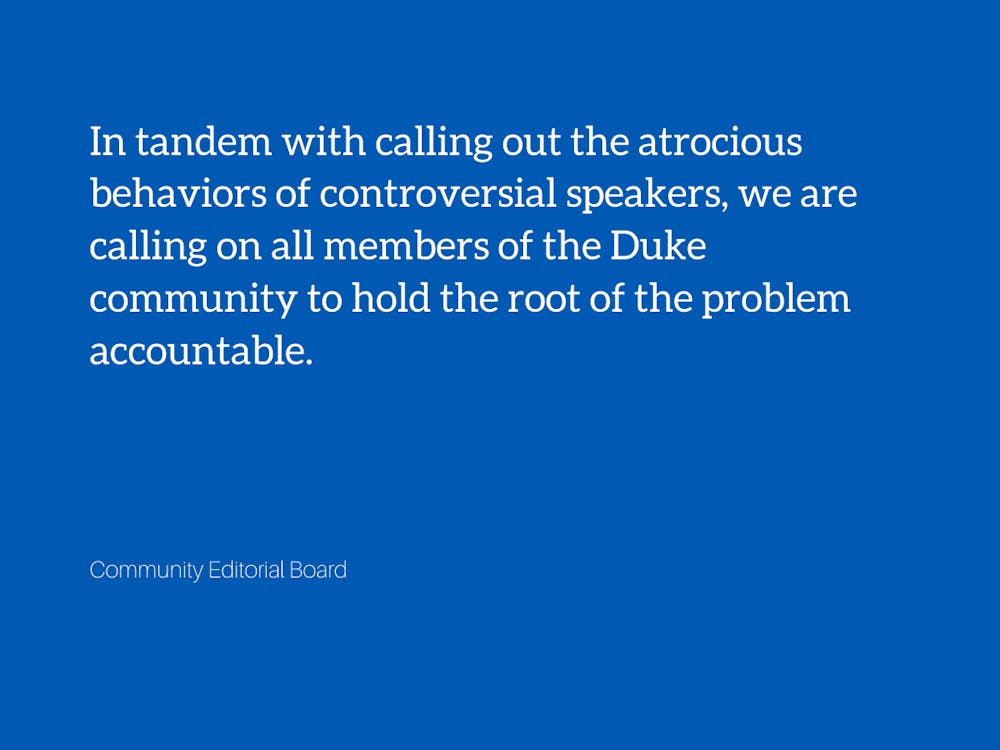If there’s anything that will entice an alleged war criminal to visit campus, it is the deep pockets of the American Grand Strategy (AGS) program. Most recent on their long list of controversial speakers is former national security advisor, John Bolton.
In some capacity, Bolton has served in every Republican administration since Ronald Reagan’s presidency. He has been a fierce advocate for regime change across the globe, has hailed the American withdrawal of support for the International Criminal Court as one of his biggest successes and believes that human rights are “only one part” of effective foreign policy. Most recently, Bolton made media waves in the impeachment trial of Trump.
After not participating in the House trial to impeach the president, Bolton announced that he would comply with a subpoena from the Senate in their impeachment trial. Impeachment came and went without a testimony from Bolton. All the public got on the manner was New York Times coverage of Bolton’s leaked manuscript for his upcoming book—a book he would not let the Page Auditorium audience forget would reveal all once it got proper clearance.
The national spotlight on Bolton—and consequently, the whetted appetite of the audience members for the event—speak magnitudes about the performative spectacle of white supremacy in this nation.
There could be a million reasons why someone would sit in one of the sold-out seats to see Bolton. The event attracted students and Triangle residents alike—all of whom had some interest in what the former national security advisor had to say. Based on the event, however, it’s clear that despite Bolton’s extensive policy positions or actions taken prior, his vast history in past Republican administrations and his best efforts to steer the conversation in a different direction, attendees were there to hear about the impeachment trial. The loudest audience reaction from the night—except for Feaver’s half-joke that the stage was a “safe space” for Bolton—came in response to a question about why Bolton complied with the Senate subpoena, but not the House’s.
Perhaps what is most disturbing about the situation is how the aggrandization of the impeachment trial sharply contrasts with the lack of awareness—or apathy—towards the global victims of American imperialism. Audience members who filled Page that night have the luxury of watching in the stands while being largely disconnected from the violence figures like Bolton promote across the world. As Bolton took center stage and audience members clapped in their chairs, the voices that represented the people impacted by his advice were outside and out of sight.
Duke likes to pretend that it is a passive actor in events like these. After all, Bolton’s invitation to campus was driven by Feaver’s need to construct America’s “next generation of strategists,” and it was AGS’s abundance of grants that paid for the event. All Duke did was provide the space, right? Providing a space for John Bolton, however, makes Duke an active participant in the event. The implications are disturbing. At a time when students are calling for a detailed hate and bias policy and swastikas are being drawn on campus, Duke should not allow speakers on campus who promote violence through white supremacy, imperialism or other forms of discrimination.
Bolton’s policy positions have put the lives of millions of people at risk. Someone with that sort of track record should not be given the platform to speak at a university with a history of claiming absolvence when its ties to human rights abuses have been exposed. Before free speech boomers enter our comments and remind us how important it is that Duke allow open and honest conversation, might we remind you that Duke has found reasons to block unsavory groups from accessing campus as a platform for political evangelism.
It is clear that speakers like Bolton will continue to be invited to campus as long as the demand and the resources exist to host them. In tandem with calling out the atrocious behaviors of controversial speakers, we are calling on all members of the Duke community to hold the root of the problem accountable.
AGS is not an objective entity when it brings polarizing, right-wing, war-obsessed speakers to campus. It has been called out on how its mission runs counter to some students’ ethical standards in continuing to invite controversial individuals to Duke.
But Duke is not an apolitical arbiter of free speech and conversation—it has control over who is granted the space to espouse what beliefs. Space in higher education is never neutral. With each speaker Duke allows on campus, it enables the beliefs, actions, and rhetoric of that person. If Duke were honestly committed to Knowledge in the Service of Society, Bolton never would have received an invitation to speak in the first place.
Get The Chronicle straight to your inbox
Signup for our weekly newsletter. Cancel at any time.

